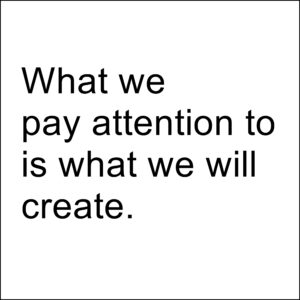It’s strategic planning time – the time to dream big, to reach for what is possible!
Except we all know that’s not really what happens. At the end of the session, our biggest goal – if we’re lucky – might be to create a new program aimed at a small fraction of the problems our community is facing.
Why do our supposedly “strategic” plans so often feel less than strategic?
The problem isn’t you. And it isn’t the planning consultant you hired.
The problem is strategic planning itself.
Traditional strategic planning is incapable of creating sweeping, visionary, long-term, systemic community change because it was never designed to do so.
Strategic planning originated in the military (the word “strategy” comes from ancient Greece, meaning “army general”), and was later embraced by the business world. Its purpose in both cases is to gain strategic advantage over an enemy (or the competition) to create short term gains (win a battle, increase profits). It was never intended to create long-term, systemic, societal change. Strategic planning is reactive and short-term focused BY DESIGN.
While almost every aspect of strategic planning poses problems for creating systemic change, in this short article, let’s start where almost every strategic plan begins: Gathering data.
Whether we use a situational analysis, environmental scan, or needs assessment, we are taught that gathering data is the important first step in your plan because, “to get where you’re headed, you need to know where you are.”
Unfortunately, that oft-repeated phrase is simply inaccurate.
Imagine I want to visit Paris. Having established my destination, I can now figure out a route to Paris from wherever I am – whether that is my home in Arizona, or my friend’s home in Lisbon. The first thing to establish, therefore, is not where I am right now, but where I want to be.
Yet when we do strategic planning, “knowing where we are” becomes the touchstone of the plan. That data creates the context for what and how much the plan will accomplish. And gathering that data takes up the vast majority of a group’s time, effort, resources, and attention.
A needs assessment takes time, and we often hire an outside consultant to do that work (which costs money). Surveys and focus groups… I have seen organizations spend six months gathering this data.
Then we study the data. We analyze and create scenarios around the data.
Finally, when all those months of work are complete, we then take 6-8 hours (if that) with our board and key staff, hammering out what direction we’ll take, rooted in the data that we have invested all that time and money to assemble and analyze.
In the short time we have together, we ask, “How much of a dent do we think we can make in those problems in the next two years?”
And that becomes our plan, firmly centered NOT on our destination (a humane, equitable, healthy community) but on reacting to today’s reality.
We wanted to get to Paris. Instead, we’ve done a six-month study of our driveway, and made plans to get to the supermarket.
When data is the anchor to which a plan is tethered, it guarantees that the plan will be reactive. Because what else can you do with data but react to it?
Reactivity and incrementalism are the almost certain result
when a plan begins with data.
 No big, hairy, audacious goals. No creating what is possible.
No big, hairy, audacious goals. No creating what is possible.
What we pay attention to is what we will create.
The only way to get where we want to go is to ground ourselves in that destination. If we are hoping to create a humane, equitable, healthy future, we will be laser-focused on our community members’ aspirations for the future. We will determine what needs to be in place to turn those aspirations into reality, laying a path of dominoes that will lead to that goal.
THAT is when we will need data.
The information we need at that point may be similar to what we would have asked at the beginning, or it might be very different. It might include ideas for addressing today’s needs, or it might focus solely on creating positive conditions that do not yet exist in the community.
Regardless, the questions we pose will be in service to the future we intend to create.
By gathering data once you know where you’re heading, you will be freed up from reactivity and incrementalism. You will be free to focus squarely on creating the humane, equitable, healthy future you want for your community and our world.
Because what we pay attention to is what we will create.

